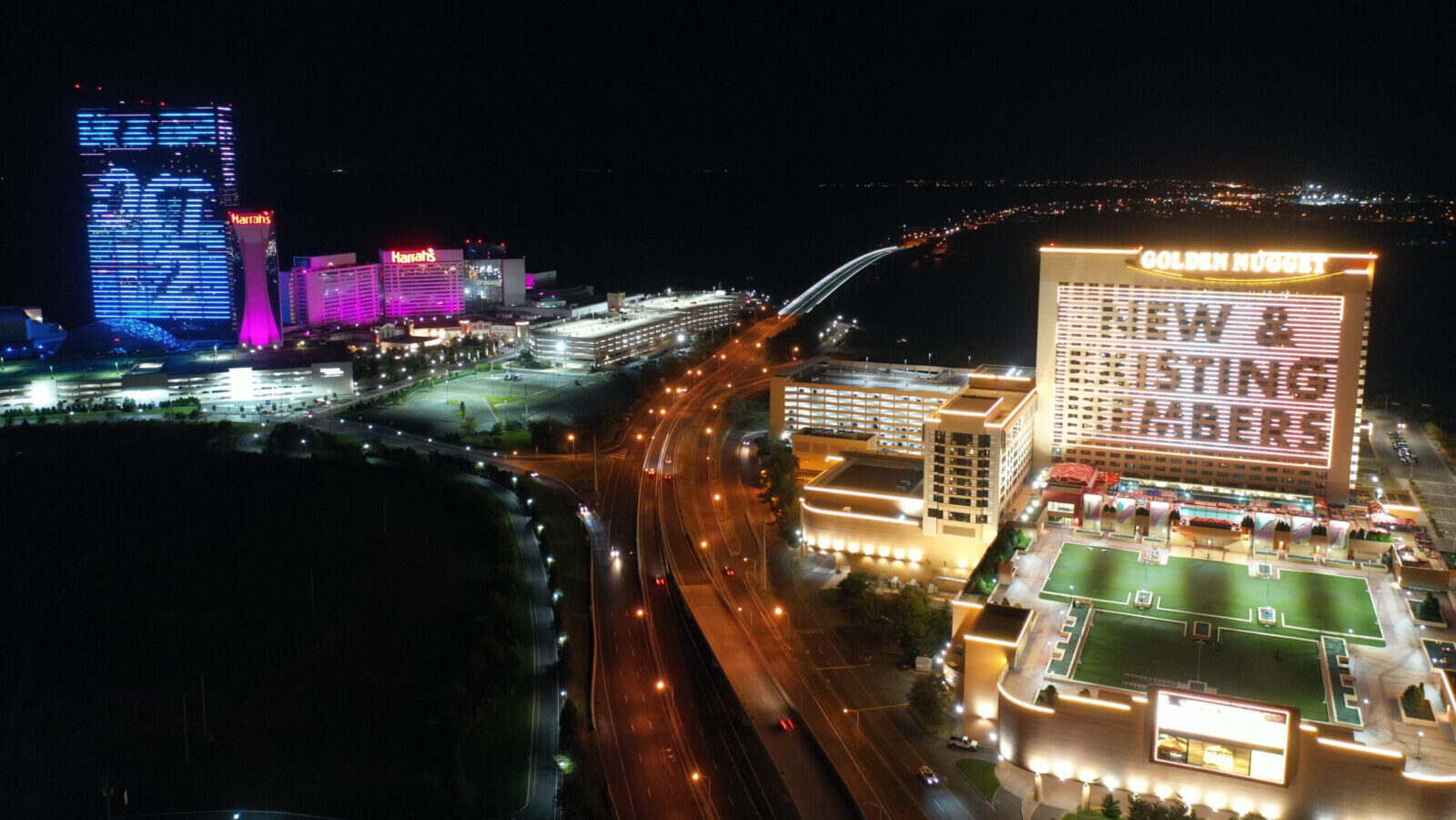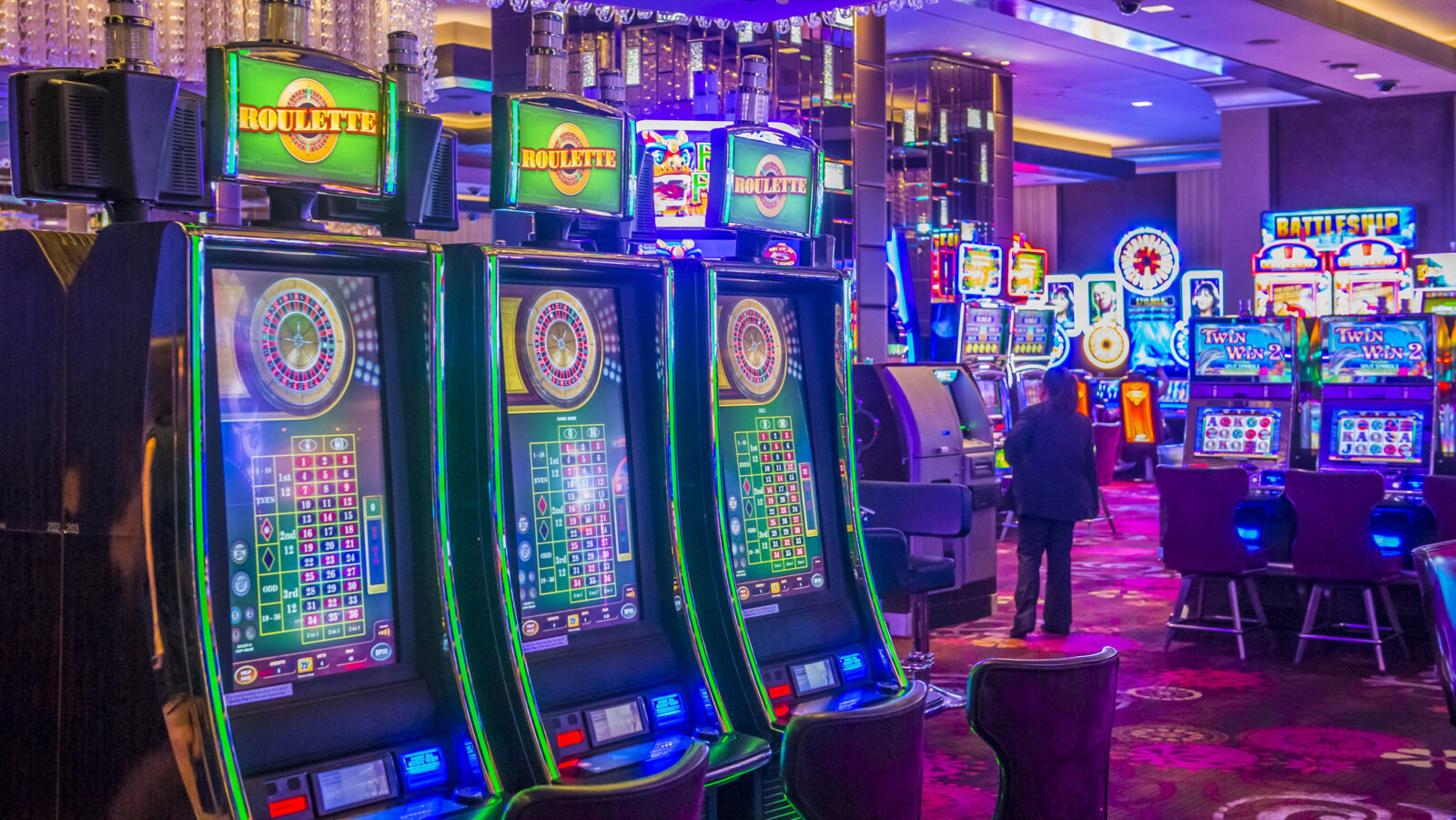Proposed New Jersey Online Gaming Tax Hike Is The One With Potential To Rock Industry
Outsiders who fear that a New Jersey gambling tax hike is imminent may be soothed to know that McKeon's bill, which would raise the tax as of Jan. 1, 2025, has yet to gain a single co-sponsor.
5 min

The imminent hike of the online sports betting tax in Illinois from 15% to up as high as 40%, coming on the heels of Ohio’s doubling of its own tax rate that went into effect earlier this year, already is sending shock waves through the gaming industry.
But a proposed sports betting tax increase introduced in New Jersey, if ever approved, would leave the industry and investment community reeling even more.
That’s because the Garden State — the second in the U.S. to launch retail casinos (in 1978) and online casino gaming (in 2013) and the one that won a six-year court battle in 2018 to open the door for the legal sports betting revolution — traditionally is known as a “business-friendly” state for the gaming industry.
If New Jersey were to jump on what becomes a gambling tax-hike bandwagon, no doubt lawmakers in many states with far more limited gambling histories will take notice.
Keeping up with the Joneses
The modest 8% tax rate on Atlantic City casinos introduced almost a half-century ago remains in place today. The sports betting tax in the state is set at a manageable 13% for mobile sports betting revenue and 15% for online casino revenue.
But state Sen. Jack McKeon, who has been in the statehouse for 22 years, in April introduced a bill that would jack up that sports betting tax to 30% across the board. The same would go for online casino revenue, a source of funding available in far fewer states than sports betting.
McKeon reasons that since tax rates in neighboring states New York (51%) and Pennsylvania (36%) haven’t scared off sportsbooks, surely they can handle a mere 30% rate in New Jersey. Online casino revenue also is taxed at 30% or more in Pennsylvania.
The senator told New Jersey Monitor in April when he first introduced the measure that New Jersey’s gaming tax rates are “just not commensurate with where everybody else is, and we can use the revenues.”
As for the challenge in standing up to New Jersey’s powerful gambling industry, McKeon added, “In that regard, I’m happy to be fearless.”
The change in Illinois, which features a graded scale of 20-40% tax depending on the amount of monthly revenue — the more revenue, the higher the tax rate — could provide more ammunition for McKeon’s plan.
Split verdict from former NJ legislators
Conditional support for McKeon’s bill comes from a source that may be surprising to some: former state Assemblyman Ralph Caputo, who spent more than two decades as an Atlantic City casino executive in between separate stints in the statehouse in Trenton.
“I think [McKeon] is on the right track,” the retired Caputo told Casino Reports of his fellow assemblyman from 2008-2023. “There’s no doubt they should raise it; the question is getting to a number [gaming operators] can live with.”
Caputo, who said that sportsbook operators lobbied for a 10% tax rate in 2018 before he successfully recommended the 13 and 15% rates, believes that the best route would be public hearings that could produce insight from gaming operators about the impact of such a tax hike.
But that route no doubt would push the debate into autumn or beyond, as the state legislature only meets eight more times before the session ends for the summer on June 28.
Retired state Sen. Ray Lesniak, who is on the unofficial “Mount Rushmore” of the quixotic sports betting takedown of the major sports leagues thanks to that 2018 U.S. Supreme Court ruling, has a different point of view.
“My initial support for all of the gambling expansion was in an effort to keep the horse racing and casino industries alive,” Lesniak said. “I like [McKeon], but here we disagree.”
Lesniak added that while gaming industry giants like DraftKings or FanDuel “can handle” such a tax hike, the move could hurt the casinos and the racetracks if their share of mobile gambling revenue diminishes.
Outsiders who fear that a New Jersey gambling tax hike is imminent may be soothed to know that McKeon’s bill, which would raise the tax as of Jan. 1, 2025, has yet to gain a single co-sponsor.
And the state Senate Government, Wagering, and Tourism & Historic Preservation Committee, which features McKeon as the vice chairman, has not met since March 16 and does not yet even have a meeting scheduled in June.
A Jersey tax hike history lesson
The first Atlantic City casino was Resorts, which opened two years after a statewide referendum was approved in 1976. The idea was to provide thousands of full-time jobs to a South Jersey economy that was in need of such employment.
As such, the tax rate was set about as low as it was in Nevada, which until then had a monopoly on legal casino gambling in the U.S. Casino operators flocked to the New Jersey seaside resort, and industry revenues rose every single year for decades.
Then along came new Gov. James McGreevey in 2002, who decided that surely the well-heeled Atlantic City gaming companies could handle a modest tax increase from 8% to 10%. That would provide an estimated $135 million in annual new tax revenue to the state, at no direct cost to the average taxpayer.
But the stock market value of the casino operators in New Jersey declined by a total of a half-billion dollars in a single day after McGreevey’s proposal, while Bally’s announced it would postpone construction of another casino pending the result of the debate.
Operators insisted — and the market seemed to agree — that once a tax hike on casinos was on the table once, there was reason to be concerned that there was no reason another one might occur a few years down the road.
The resistance, fueled by numerous casino-supporting lawmakers in Trenton, was successful. While McGreevey pushed through an alternative revenue package from the industry in 2003, he also signed into law an equivalent number of perks in 2004 and 2005. McGreevey’s pitch for video lottery terminals at the Meadowlands Racetrack also fell to the wayside due to industry opposition to the loss of Atlantic City’s statewide gambling monopoly.
Follow the money
How much money is at stake for New Jersey if the tax hike is approved?
The gaming industry in 2023 paid $288.5 million in taxes from its online casino revenue and $125.6 million in taxes from its mobile sports betting revenue. (The $178.1 million collected from brick-and-mortar casinos last year falls right in between, mostly because of the lower tax rate.)
So roughly doubling the tax rate would turn the $414.1 million in online revenue from 2023 into more than $800 million in 2025, right?
Not necessarily.
Even assuming that operators don’t flee the state — that is unlikely, given the grudging industry acceptance of even higher rates in New York and Pennsylvania than McKeon’s proposal — there likely would be a reduction in marketing spending, which could in turn lead to a drop in overall revenue.
The sportsbooks also may decide to offer less favorable gambling odds and fewer “free bet” incentives to try to retrieve some of the lost revenue, which could drive some customers to illegal offshore books that do not pay any amount of taxes to the state.
Still, New Jersey lawmakers may have an opportunity to add hundreds of millions of dollars to a treasury that needs money, without directly taxing inflation-impacted residents.
That’s why though passage of McKeon’s bill is very unlikely by the end of June, it could be revisited in the fall. And with news of a new Illinois tax rate putting it in a similar ballpark to neighbors along New Jersey’s borders, even some of the gaming industry’s supporters in the statehouse in Trenton may well be inclined to listen to, for example, a compromise that raises the rate to 20 or 25%.




